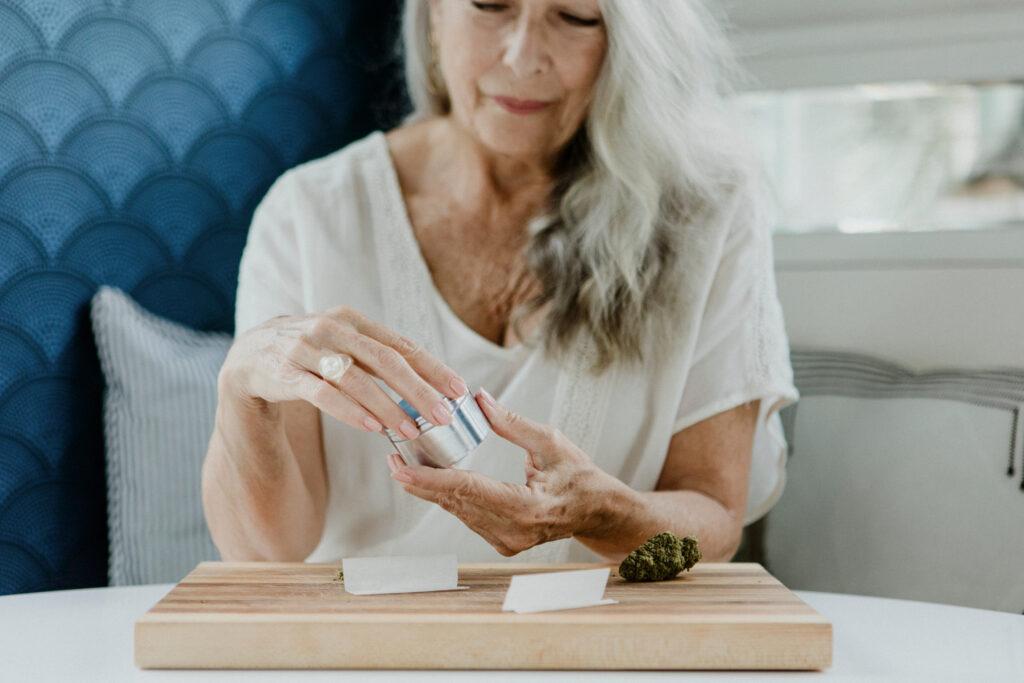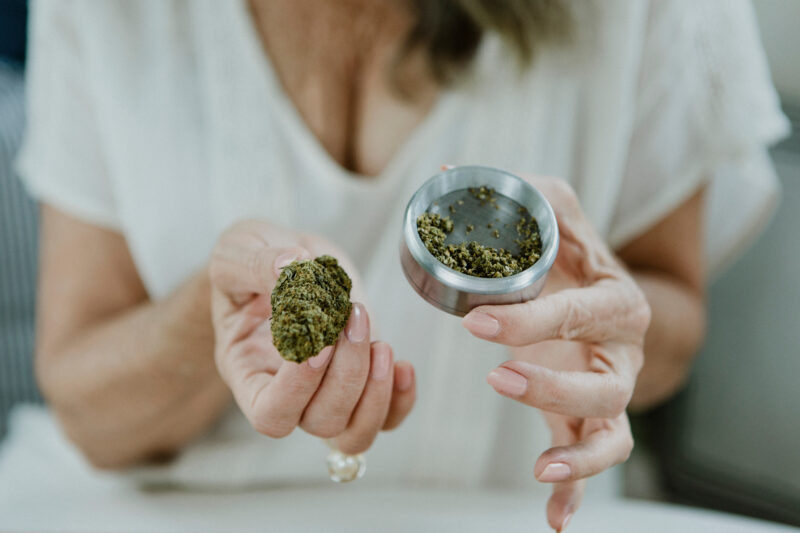Patsy Lee, 77, is a widowed Midwesterner with both an adventurous mind and an aching body. She admittedly grew marijuana on a rural Kansas farm with her late husband throughout the ‘70s.
“We just told the kids they were tomato plants,” she laughed.
Her humor was a catalyst for a more authentic conversation and reflection on her personal desire and need for access to marijuana in her home state.
”I almost didn’t get my job at the prison because I smoked pot and was honest about it,” she said. “I’m resentful that Kansas is so behind everything. I think it ought to be legalized everywhere.”
Lee’s candor is a testament to the percentage of Americans who are openly talking about cannabis, including an increase from 32% to 36% in one year in the number of older adults admitting they’ve used at some point in their lives. Marijuana consumption is becoming less taboo in the United States, and that proves to be especially true for seniors.
Millions of older adults undergo a full spectrum of medical procedures each year—many that bring with them a host of painful side effects. Lee herself has dealt with joint replacement surgeries, broken bones, radioiodine therapy, “burned” nerves—even brain surgery following a major holiday decorating accident.
“I’ll be getting up on the ladder again soon, but don’t tell my daughter,” she joked.
In October 2018, Lee suffered from an epidural hematoma – blood accumulation between the skull and outer membrane of the brain – which required surgical removal to remove the fluid and relieve pressure on her brain. She was immediately prescribed pain medication—another bottle to add to the collection in her medicine cabinet.
Lee firmly believes marijuana would have benefited her more than pain killers.
“I’m resentful. I don’t know why Kansas doesn’t get with the program,” Lee said in response to the legality of medical marijuana in 36 states and four territories. “If I had the opportunity to get a medical card in Kansas, I would. It would be really easy, too. I think all the doctors would help with that.”
A recent study revealed additional benefits older adults can possibly see through medical cannabis, including relief from a variety of symptoms such as “chronic pain, sleep difficulties, tremor, spasticity, agitation, nausea, vomiting and reduced appetite.” The study also reported on the use of cannabis in palliative care, but concluded more work is required to determine the full medical benefits of marijuana for aging adults.

A major cultural shift in the acceptance – and embrace – of cannabis has weakened the stigma of recreational use for aging adults. Popular senior destination states such as Florida have seen a jump in aging clientele at marijuana dispensaries—many of which have started offering senior discounts.
“I got one bottle [of edibles] for my birthday, but I don’t use them often because I don’t have any more—but I love those gummies,” Lee said in regards to her current access to THC.
While she currently uses CBD, she doesn’t believe it has made a difference.
“I feel like it doesn’t do anything, but I still order it,” she said.
Economically speaking, it appears there’s an untapped market of aging adults ready to spend to be in less pain and explore potential recreational benefits.
“My daughter even says I’m getting funny again because I don’t hurt all the time,” she said. “It makes me happy. Less stressed. I love it.”

